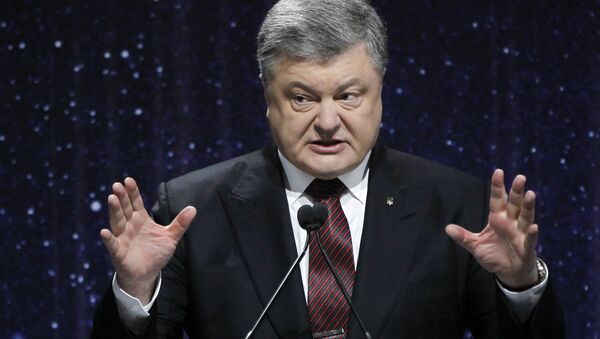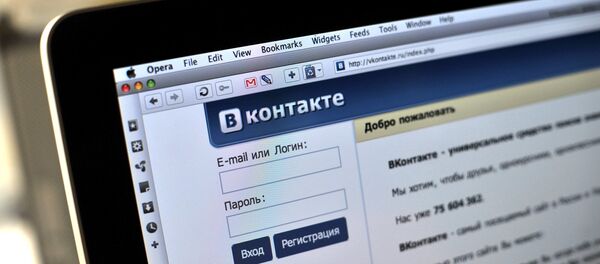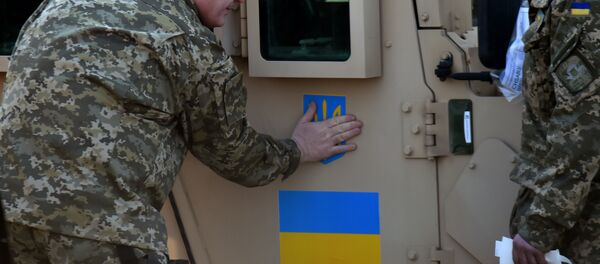Reuters reported Saturday that Group of Seven (G7) leaders have yet to agree on the language to be used to declare the group's position on Russia. According to a source cited by the news agency, officials haven't been able to agree on whether to include a pledge in the final communique to take additional action against Russia for Moscow's alleged meddling in the Ukrainian crisis.
Ahead of the summit, European Council President Donald Tusk complained that the meeting would "no doubt" be "the most challenging G7 summit in years," and urged leaders to maintain anti-Russian sanctions.
But such overtures didn't seem to be enough for Ukrainian President Petro Poroshenko, who penned an entire op-ed piece in Politico titled 'G7 must face down Russia or suffer disaster.'
The piece, which compares Russia to Nazi Germany and recalls Winston Churchill's unheeded warnings about the Nazis' aggressive plans ahead of WWII, says that "today, it is crucial not to repeat this mistake in Ukraine, which has become the primary target of Russia's revenge for the geopolitical collapse of the Soviet Union."
Poroshenko claimed that Russia is using 'hybrid warfare' against the West, and must be stopped. "The Kremlin's tentacles are reaching for the throats of key capitals of Europe and its transatlantic allies," he added.
Earlier this month, Poroshenko signed off on a decree introducing targeted sanctions against the Russian social networks, banning their use in Ukraine for a three year period. The measures, affecting some 25 million Ukrainians, have been slammed by journalists, rights activists, and even Kiev's erstwhile allies in the West. The ban has also become a source of considerable embarrassment for Poroshenko personally. Kiev has been forced to admit that an effective ban would cost a billion dollars and take two years to implement. Meanwhile, ordinary Ukrainians have already found ways around the restrictions.
In his Politico piece, rather than admit what even many pro-Kiev politicians say was a mistake, Poroshenko held firm, and even patted himself on the back for his own 'bravery'.
"Those who are brave enough to cut these tentacles only find themselves under renewed attack," the president complained. "This recently became obvious in Ukraine. When we suspended access to social networks administered by the Russian Federation, Moscow responded with a massive and coordinated cyberattack supported by information propaganda. Russia activated its information forces…to protect its social media agents such as VKontakte or Odnoklasniki."
Getting to what was probably the real point of the whole op-ed, Poroshenko emphasized that Ukraine was now a warrior on the frontlines of the fight to defend the Western values of freedom and democracy. And warriors need weapons and ammunition. Defending peace and security, he said, requires "enhancing [the Ukrainian] army's defense capabilities, including boosting its store of modern defensive weapons." In other words, the president's op-ed could be summed up by the line 'Please Washington, don't cut our access to grants for US weapons."
Asked to comment on Poroshenko's op-ed, Russian senator Franz Klintsevich jested that the president's words about 'Kremlin tentacles' were a sign of just how far his paranoia seems to have advanced. "One cannot help but recall the words of US Secretary of Defense James Forrestal, who threw himself out the window of a hospital on May 22, 1949 while shouting the phrase 'the Russians are coming,' the senator said.






